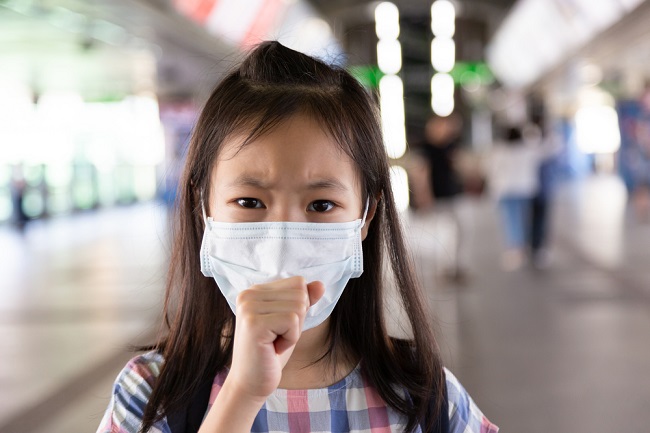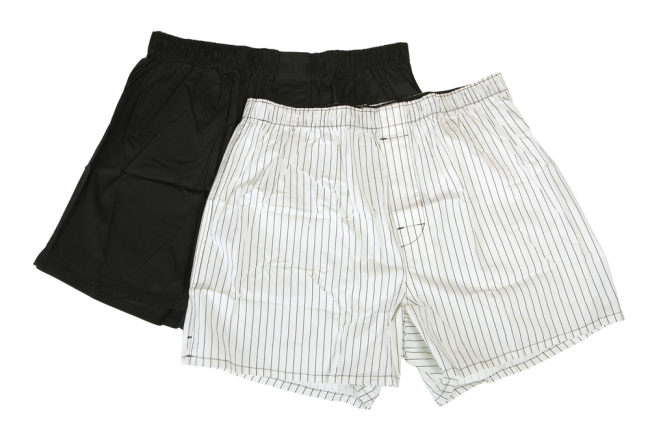Babies generally have sensitive skin, so they are easily irritated. Therefore, every parent needs to know how to care for sensitive baby skin so that his skin health can always be maintained.
Your little one's skin is generally still very sensitive, so you need to be careful using various baby products. The use of detergents, clothes deodorizers, and inappropriate diapers can usually cause skin irritation to diaper rash.

Some Problems with Sensitive Baby Skin
The skin of babies, especially newborns, is sensitive to various skin problems. However, the skin problems experienced are generally not dangerous. The following are some of the most common baby skin problems:
Diaper rash
Diaper rash is inflammation of the baby's skin due to prolonged use of diapers. This condition is characterized by reddish skin in the buttocks, groin, and genital area. When experiencing diaper rash, the baby will also look more fussy.
Diaper rash can be caused by a number of things, but it is usually the result of a fungal or bacterial infection from wearing diapers for too long. This rash is generally harmless and only lasts a few days.
Prickly heat
Prickly heat is a small, red, raised rash that feels itchy on the skin. This condition can occur when the pores of the skin are clogged, so sweat cannot come out. Prickly heat generally occurs for several days after exposure to hot temperatures or humid air.
This skin disorder can appear on any part of the body, but is more common in the neck, face, back, chest, and thighs. Prickly heat often occurs in babies because the sweat glands are not well developed.
Eczema
Eczema or atopic dermatitis is a disease that causes a baby's skin to appear scaly, dry, with bumps, and a rash or reddish patches to appear. Atopic eczema can cause severe itching on the skin, so that babies often scratch their skin to cause sores.
Until now, the cause of eczema in infants is still not known with certainty. However, there are several factors that are known to increase the baby's risk of developing eczema, including heredity or having parents who also suffer from eczema.
In certain cases, eczema symptoms can also appear due to exposure to certain products, such as detergents, soaps containing fragrance, hot air, to cigarette smoke.
Cradle cap
Cradle cap Generally characterized by dry, crusty, scaly, and peeling scalp that resembles dandruff. This condition usually occurs in newborns and can improve within a few months.
Repels Baby's Skin Disorders Using Petroleum Jelly
Disorders of the baby's skin should not be taken lightly because it can make the baby uncomfortable and more fussy. To overcome this, you can use petroleum jelly.
Petroleum jelly is a skin moisturizer made from a mixture of oil and minerals. Its function is to prevent irritation due to sensitive baby skin and keep baby's skin moist. How to use it is quite easy, namely:
- Clean the baby's skin that has rashes or other skin disorders using warm water.
- Dry using a soft towel.
- Apply a cream made from petroleum jelly and pat gently.
To get maximum results, you can apply more often petroleum jelly on the little one's skin.
Various Tips for Care for Sensitive Baby Skin
Apart from using petroleum jelly, there are several other ways that you can also do to treat your little one's skin, including:
- Clean or bathe your little one regularly using warm water at least 2-3 times a week for babies under 3 weeks.
- Change your baby's diaper when it starts to look wet or damp to keep his skin dry.
- Don't forget to always clean the genital area using baby wipes when changing diapers.
- Make sure the size of the diaper used is appropriate for your little one's body so it doesn't cause blisters on the skin.
- Use baby products that are free phthalates, parabens, and fragrance.
- Keep baby's skin moist by using a special baby moisturizer.
If you want to use baby powder, you should choose a powder that is free of talc (talc) and corn starch (cornstrach). This is because these two ingredients can trigger respiratory problems in the Little One.
If the various methods above are not effective for treating skin disorders in your little one or are getting worse, you should immediately take your little one to the doctor. The doctor will conduct an examination and determine the appropriate treatment measures to treat disorders of the sensitive baby's skin.









